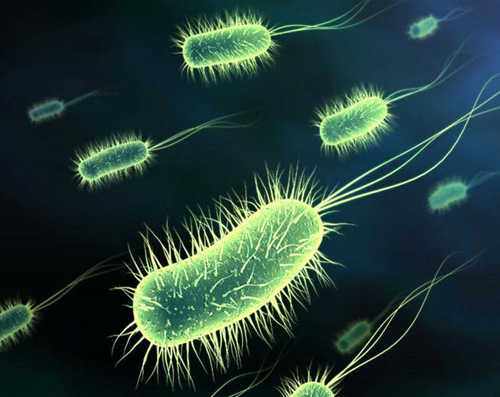Found 3,000 species of bacteria from the Jurassic period in Mexico
Recently, a group of Mexican scientists have discovered 3,000 species of Jurassic North American endemic bacteria in some wells in Cuatrocienegas region, Coahuila state, northern Mexico.

Artwork: biojobblog.com
Gabriela Olmedo Alvarez, a scientist at Mexico's Irapuato Advanced Research Center, commented that the finding shows the biodiversity of the North American region before.
The bacteria found are also clues to the origin of life on Earth millions of years ago. Some prehistoric microorganisms are even the 'ancestors' of today's microbes like antrax, a bacterium widely used in the pharmaceutical industry.
Olmedo Alvarez noted that the current massive water extraction to irrigate crops in the Cuatrocienegas region has caused some of the wells to be at risk of drying out, including wells carrying many types of ancient bacteria. .
Currently the international scientific community is very interested in studying water resources in Cuatrocienegas, even the US Aeronautics and Space Agency (NASA) has launched a number of research projects to understand the occurrence of micro This creature is in North America from millions of years ago.
- Jurassic Park on a plate
- Find shark-eating dinosaurs in Utah
- The silent savior of the Gulf of Mexico
- The amount of CO2 on Jurassic Earth is 5 times higher than the current
- The process of world domination and the destruction of dinosaurs
- Jurassic fossils discovered Jurassic sea 10m long
- Discover tiny tiny dinosaurs with Jurassic hair
- The 'dead zone' spreads across the Gulf of Mexico
- Greenhouse effect brings Earth to Jurassic
- 'Headless monster' - New mysterious creature found in the bottom of the Gulf of Mexico
- Mexico found fossil fish dating back 110 million years
- Found 'Jurassic mother'
 Why do potatoes have eyes?
Why do potatoes have eyes? 'Tragedy' the world's largest carnivorous life: Death becomes ... public toilet
'Tragedy' the world's largest carnivorous life: Death becomes ... public toilet Tomatoes were once considered 'poisonous' for 200 years
Tomatoes were once considered 'poisonous' for 200 years Detecting microscopic parasites on human face
Detecting microscopic parasites on human face